
excel-spring-boot-starter
本项目旨在为用户提供一个便捷的 Excel 导出解决方案。基于阿里巴巴的 EasyExcel 库,结合 Spring Boot 框架,封装并优化了 Excel 文件的导出流程,帮助开发者更高效地实现数据导出功能。
Stars: 457
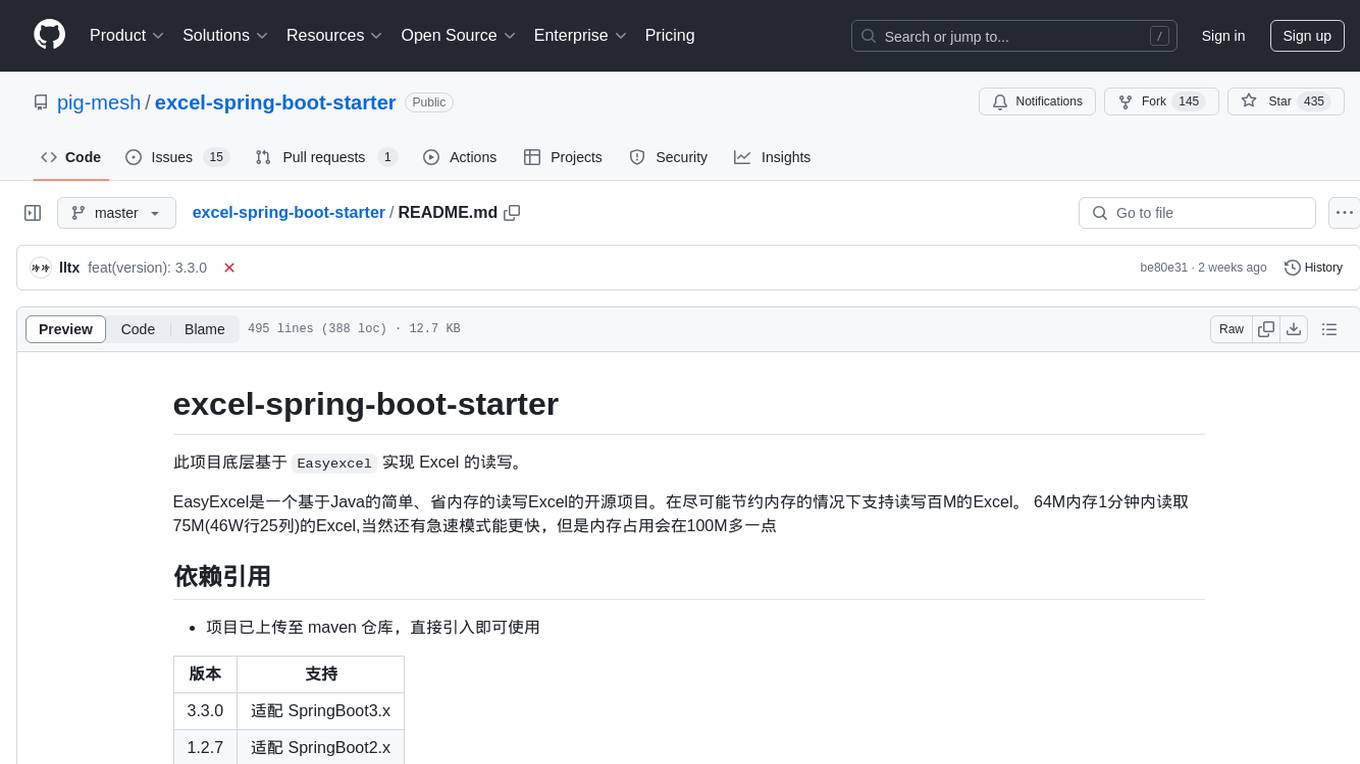
The excel-spring-boot-starter project is based on Easyexcel to implement reading and writing Excel files. EasyExcel is an open-source project for simple and memory-efficient reading and writing of Excel files in Java. It supports reading and writing Excel files up to 75M (46W rows 25 columns) in 1 minute with 64M memory, and there is a fast mode for even quicker performance but with slightly more memory consumption.
README:
以下是基于你提供的内容生成的开源项目 excel-spring-boot-starter 的 README 示例:
excel-spring-boot-starter 是一个基于 EasyExcel 实现的 Spring Boot Starter,用于简化 Excel 的读写操作。EasyExcel 是一个 Java 开源项目,旨在以尽可能低的内存消耗实现对 Excel 文件的读写。通过 EasyExcel,你可以在仅使用 64M 内存的情况下,在 1 分钟内读取 75M(46 万行,25 列)的 Excel 文件。
- 更多详细的使用说明,请参考文档:https://www.yuque.com/pig4cloud/ogf9nv
- 轻松集成到 Spring Boot 项目中,快速实现 Excel 文件的导入和导出。
- 通过注解配置导入和导出的 Excel 文件格式。
- 提供了简洁易用的 API,极大地减少了手动处理 Excel 文件的工作量。
项目已经上传至 Maven 中央仓库,只需引入以下依赖即可使用:
| 版本 | 支持版本 |
|---|---|
| 3.3.1 | 适配 Spring Boot 3.x |
| 1.2.7 | 适配 Spring Boot 2.x |
在 pom.xml 中添加以下依赖:
<dependency>
<groupId>com.pig4cloud.excel</groupId>
<artifactId>excel-spring-boot-starter</artifactId>
<version>${lastVersion}</version>
</dependency>你可以通过在接口方法中使用 @RequestExcel 注解来接收上传的 Excel 文件并将其解析为 Java 对象列表:
@PostMapping("/upload")
public void upload(@RequestExcel List<DemoData> dataList, BindingResult bindingResult) {
// JSR 303 校验通用校验获取失败的数据
List<ErrorMessage> errorMessageList = (List<ErrorMessage>) bindingResult.getTarget();
}需要先定义与 Excel 表格对应的实体类,并使用 @ExcelProperty 注解来标注 Excel 列的索引:
@Data
public class Demo {
@ExcelProperty(index = 0)
private String username;
@ExcelProperty(index = 1)
private String password;
}下图展示了与上述实体类对应的 Excel 表格:
你只需在控制器方法中返回一个 List,并使用 @ResponseExcel 注解即可将数据导出为 Excel 文件:
@Documented
@Target(ElementType.METHOD)
@Retention(RetentionPolicy.RUNTIME)
public @interface ResponseExcel {
String name() default "";
ExcelTypeEnum suffix() default ExcelTypeEnum.XLSX;
String password() default "";
Sheet[] sheets() default @Sheet(sheetName = "sheet1");
boolean inMemory() default false;
String template() default "";
String[] include() default {};
String[] exclude() default {};
Class<? extends WriteHandler>[] writeHandler() default {};
Class<? extends Converter>[] converter() default {};
Class<? extends HeadGenerator> headGenerator() default HeadGenerator.class;
}更多详细的使用说明,请参考文档:https://www.yuque.com/pig4cloud/ogf9nv
For Tasks:
Click tags to check more tools for each tasksFor Jobs:
Alternative AI tools for excel-spring-boot-starter
Similar Open Source Tools

excel-spring-boot-starter
The excel-spring-boot-starter project is based on Easyexcel to implement reading and writing Excel files. EasyExcel is an open-source project for simple and memory-efficient reading and writing of Excel files in Java. It supports reading and writing Excel files up to 75M (46W rows 25 columns) in 1 minute with 64M memory, and there is a fast mode for even quicker performance but with slightly more memory consumption.
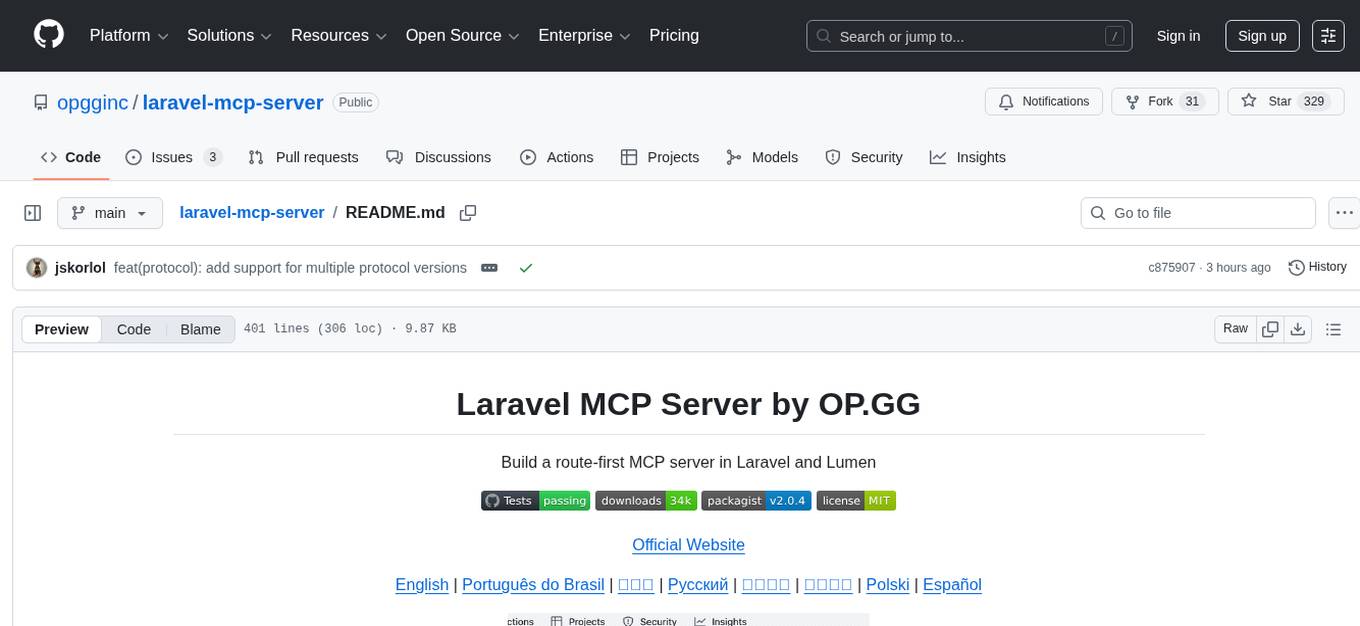
laravel-mcp-server
Laravel MCP Server is a tool that allows users to build a route-first MCP server in Laravel and Lumen. It provides route-based MCP endpoint registration, streamable HTTP transport, and supports tool, resource, resource template, and prompt registration per endpoint. The server metadata is compatible with route cache, and it requires PHP version 8.2 or higher along with Laravel (Illuminate) version 9.x or Lumen version 9.x. Users can quickly install the tool, register endpoints, and verify functionality. Additionally, the tool offers advanced features like creating tools, resources, resource templates, prompts, notifications, and generating tools from OpenAPI specs.
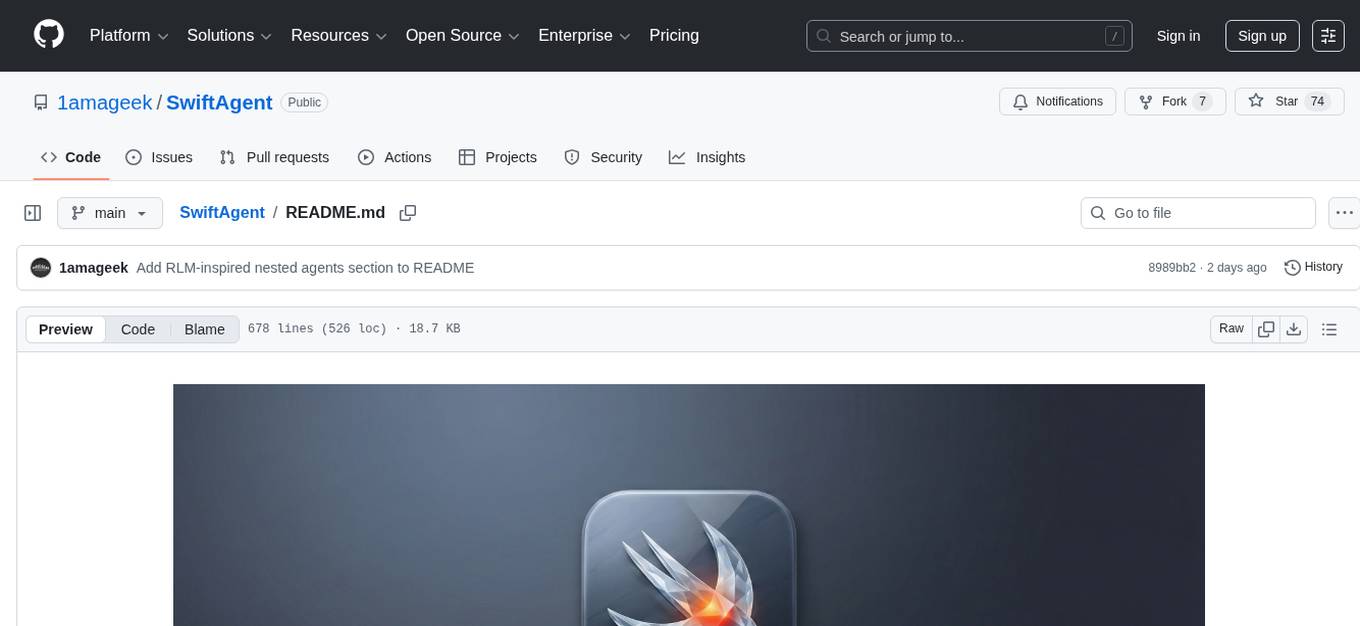
SwiftAgent
A type-safe, declarative framework for building AI agents in Swift, SwiftAgent is built on Apple FoundationModels. It allows users to compose agents by combining Steps in a declarative syntax similar to SwiftUI. The framework ensures compile-time checked input/output types, native Apple AI integration, structured output generation, and built-in security features like permission, sandbox, and guardrail systems. SwiftAgent is extensible with MCP integration, distributed agents, and a skills system. Users can install SwiftAgent with Swift 6.2+ on iOS 26+, macOS 26+, or Xcode 26+ using Swift Package Manager.
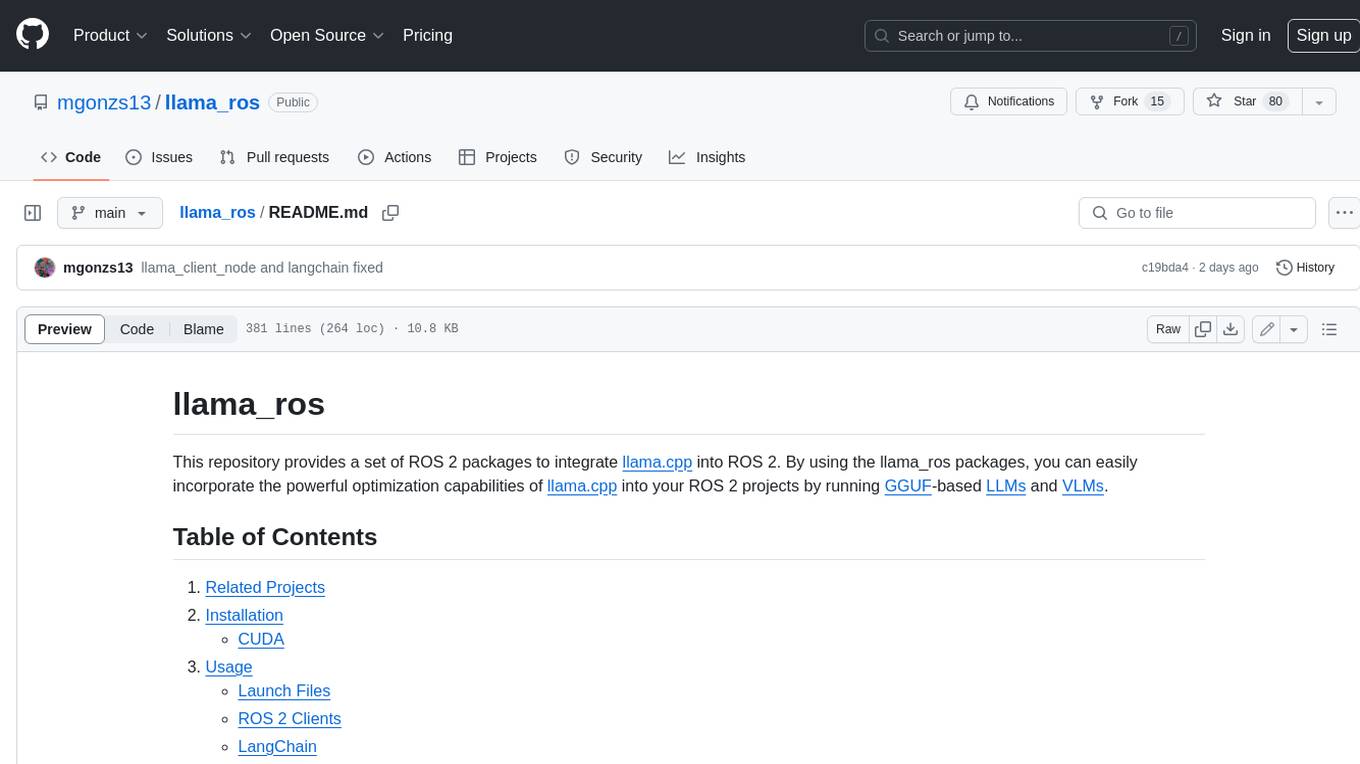
llama_ros
This repository provides a set of ROS 2 packages to integrate llama.cpp into ROS 2. By using the llama_ros packages, you can easily incorporate the powerful optimization capabilities of llama.cpp into your ROS 2 projects by running GGUF-based LLMs and VLMs.
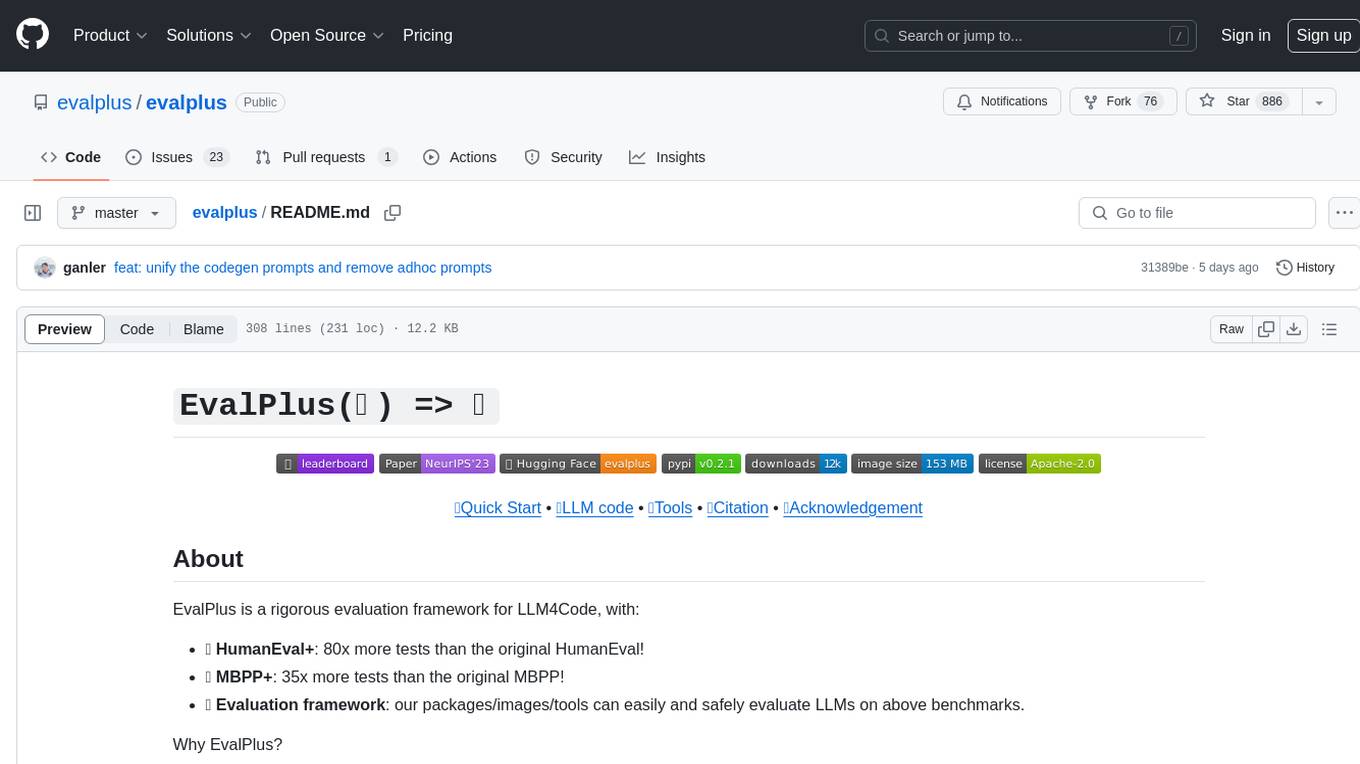
evalplus
EvalPlus is a rigorous evaluation framework for LLM4Code, providing HumanEval+ and MBPP+ tests to evaluate large language models on code generation tasks. It offers precise evaluation and ranking, coding rigorousness analysis, and pre-generated code samples. Users can use EvalPlus to generate code solutions, post-process code, and evaluate code quality. The tool includes tools for code generation and test input generation using various backends.
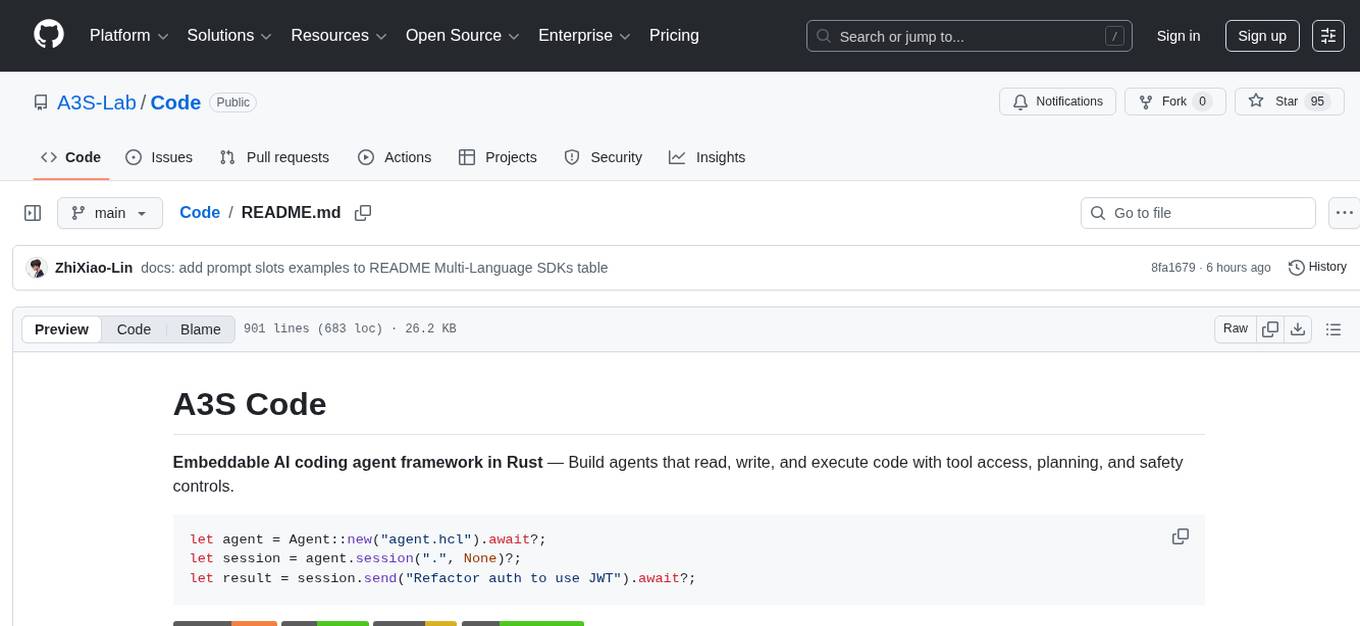
Code
A3S Code is an embeddable AI coding agent framework in Rust that allows users to build agents capable of reading, writing, and executing code with tool access, planning, and safety controls. It is production-ready with features like permission system, HITL confirmation, skill-based tool restrictions, and error recovery. The framework is extensible with 19 trait-based extension points and supports lane-based priority queue for scalable multi-machine task distribution.
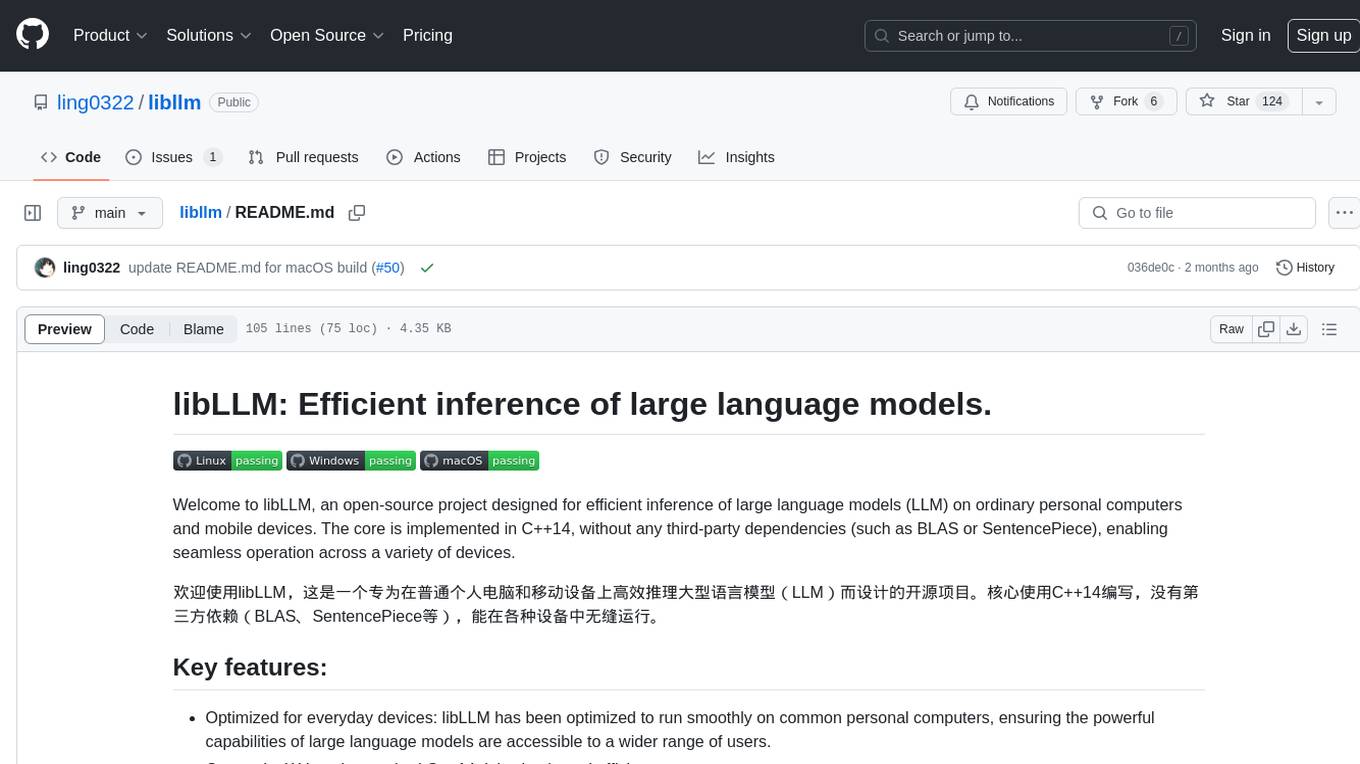
libllm
libLLM is an open-source project designed for efficient inference of large language models (LLM) on personal computers and mobile devices. It is optimized to run smoothly on common devices, written in C++14 without external dependencies, and supports CUDA for accelerated inference. Users can build the tool for CPU only or with CUDA support, and run libLLM from the command line. Additionally, there are API examples available for Python and the tool can export Huggingface models.
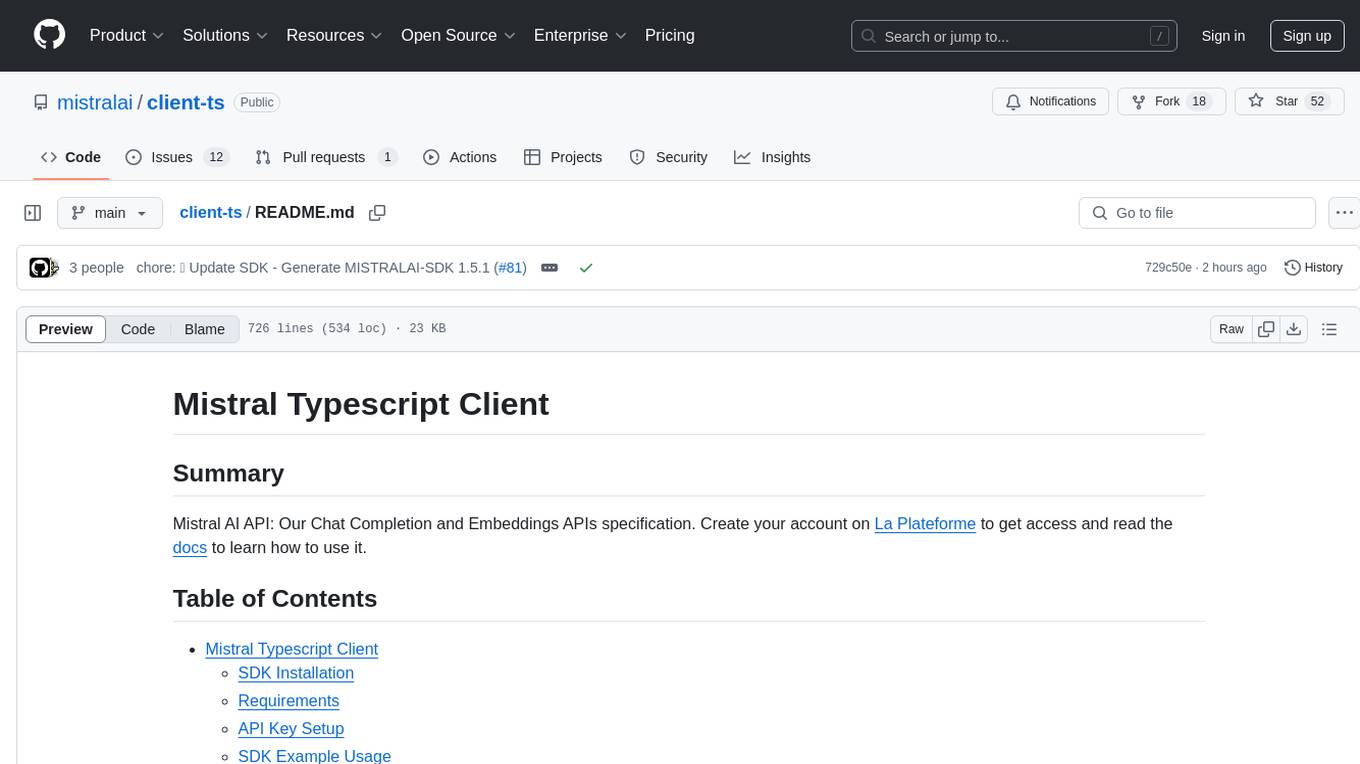
client-ts
Mistral Typescript Client is an SDK for Mistral AI API, providing Chat Completion and Embeddings APIs. It allows users to create chat completions, upload files, create agent completions, create embedding requests, and more. The SDK supports various JavaScript runtimes and provides detailed documentation on installation, requirements, API key setup, example usage, error handling, server selection, custom HTTP client, authentication, providers support, standalone functions, debugging, and contributions.
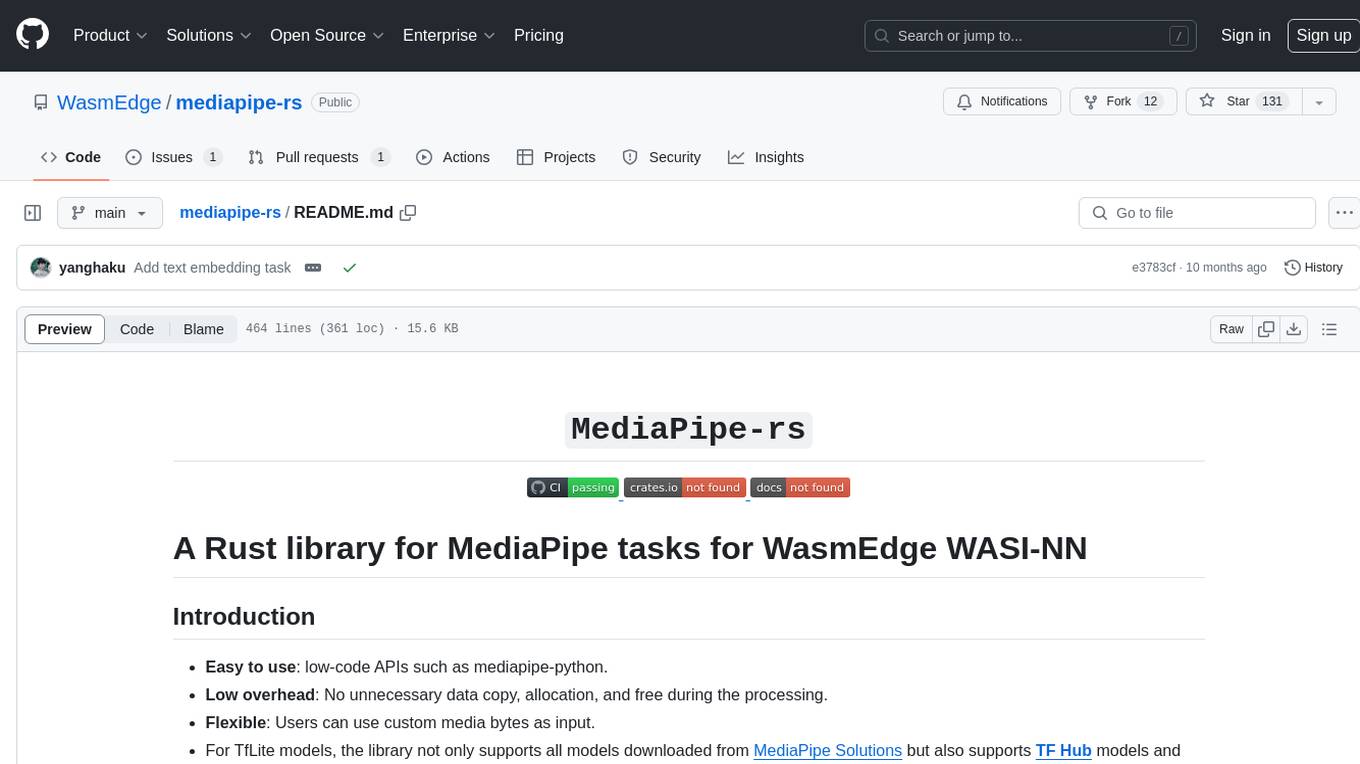
mediapipe-rs
MediaPipe-rs is a Rust library designed for MediaPipe tasks on WasmEdge WASI-NN. It offers easy-to-use low-code APIs similar to mediapipe-python, with low overhead and flexibility for custom media input. The library supports various tasks like object detection, image classification, gesture recognition, and more, including TfLite models, TF Hub models, and custom models. Users can create task instances, run sessions for pre-processing, inference, and post-processing, and speed up processing by reusing sessions. The library also provides support for audio tasks using audio data from symphonia, ffmpeg, or raw audio. Users can choose between CPU, GPU, or TPU devices for processing.
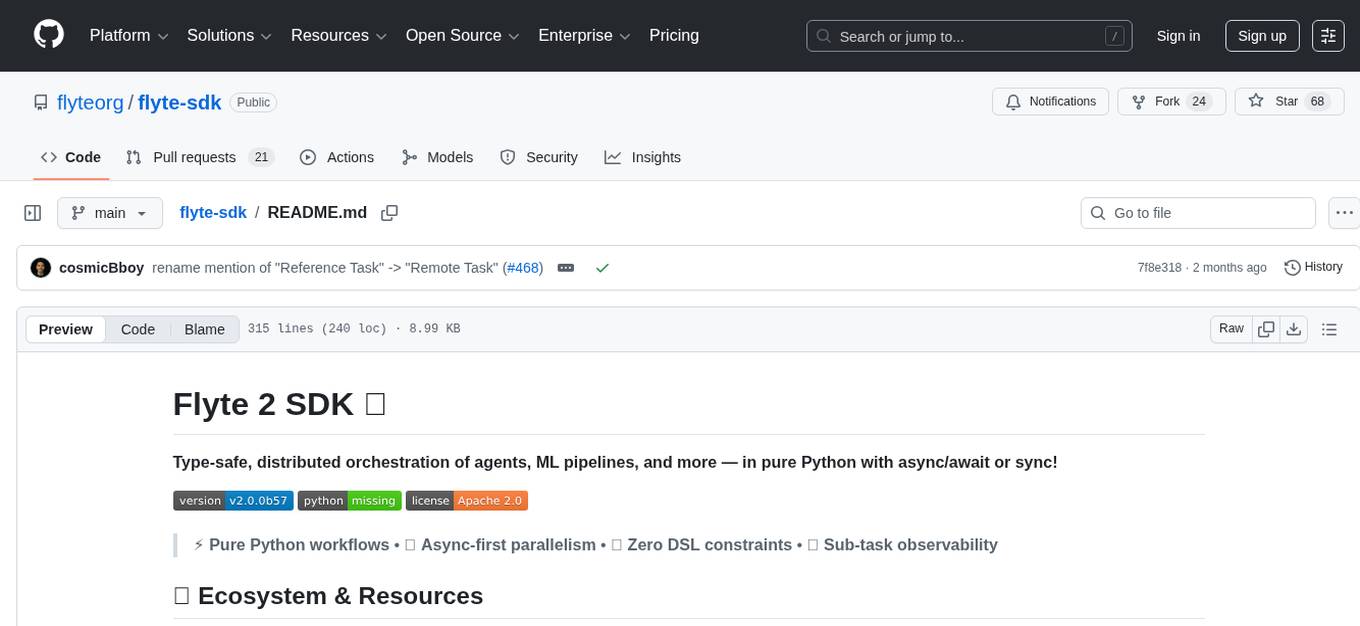
flyte-sdk
Flyte 2 SDK is a pure Python tool for type-safe, distributed orchestration of agents, ML pipelines, and more. It allows users to write data pipelines, ML training jobs, and distributed compute in Python without any DSL constraints. With features like async-first parallelism and fine-grained observability, Flyte 2 offers a seamless workflow experience. Users can leverage core concepts like TaskEnvironments for container configuration, pure Python workflows for flexibility, and async parallelism for distributed execution. Advanced features include sub-task observability with tracing and remote task execution. The tool also provides native Jupyter integration for running and monitoring workflows directly from notebooks. Configuration and deployment are made easy with configuration files and commands for deploying and running workflows. Flyte 2 is licensed under the Apache 2.0 License.
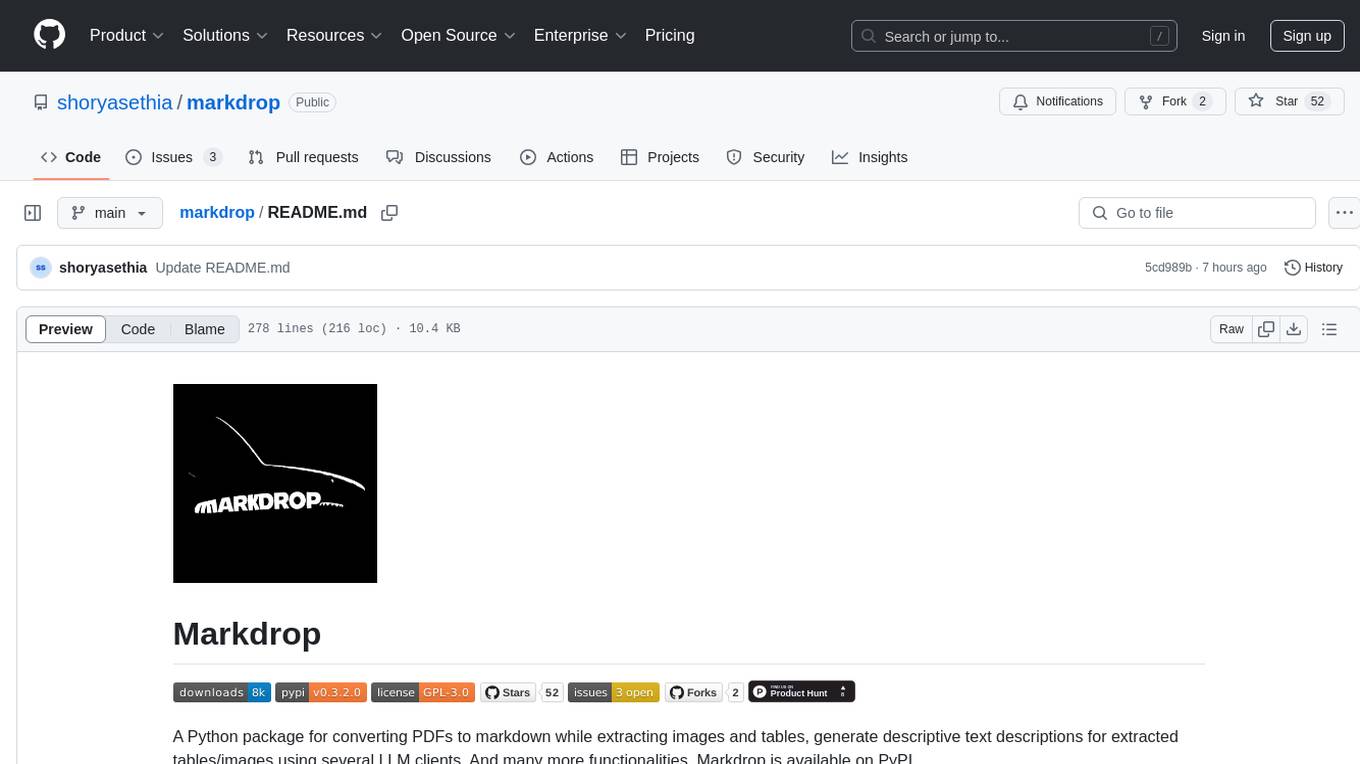
markdrop
Markdrop is a Python package that facilitates the conversion of PDFs to markdown format while extracting images and tables. It also generates descriptive text descriptions for extracted tables and images using various LLM clients. The tool offers additional functionalities such as PDF URL support, AI-powered image and table descriptions, interactive HTML output with downloadable Excel tables, customizable image resolution and UI elements, and a comprehensive logging system. Markdrop aims to simplify the process of handling PDF documents and enhancing their content with AI-generated descriptions.
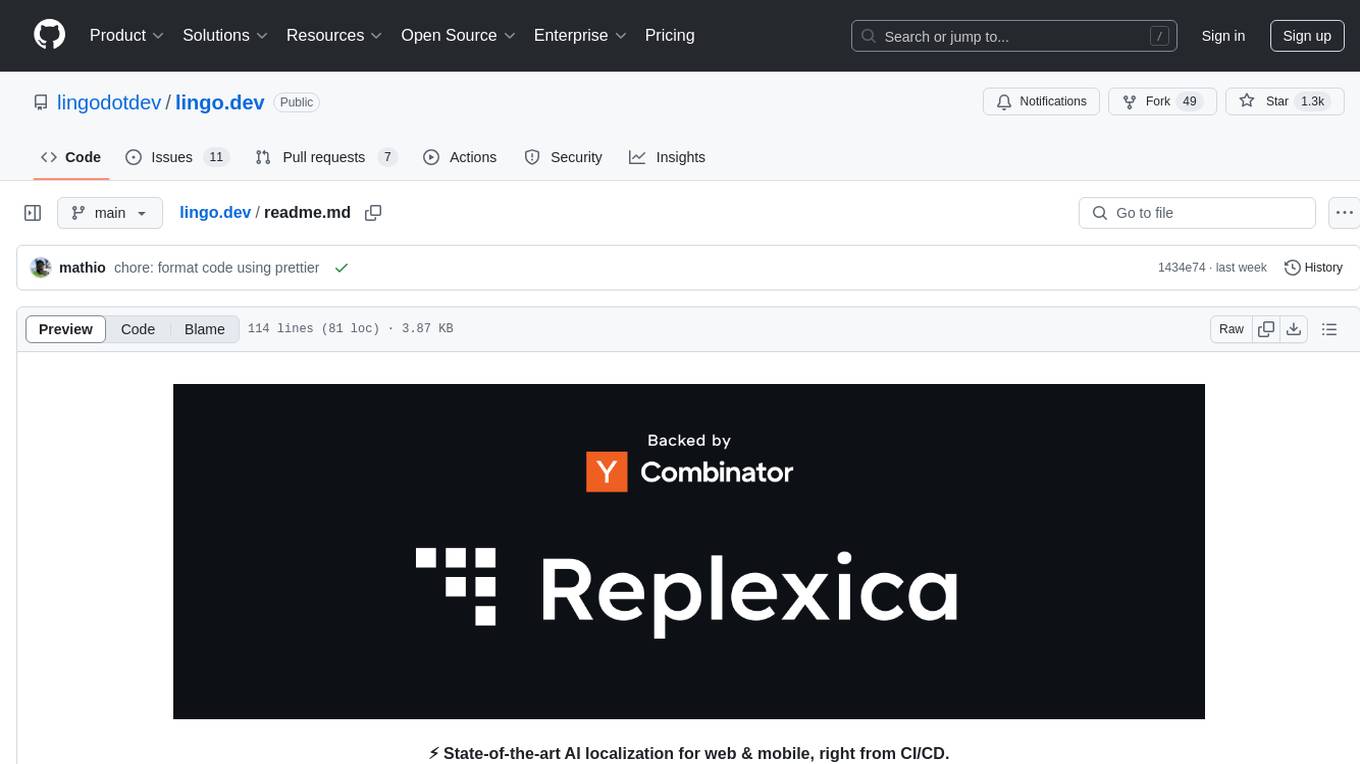
lingo.dev
Replexica AI automates software localization end-to-end, producing authentic translations instantly across 60+ languages. Teams can do localization 100x faster with state-of-the-art quality, reaching more paying customers worldwide. The tool offers a GitHub Action for CI/CD automation and supports various formats like JSON, YAML, CSV, and Markdown. With lightning-fast AI localization, auto-updates, native quality translations, developer-friendly CLI, and scalability for startups and enterprise teams, Replexica is a top choice for efficient and effective software localization.
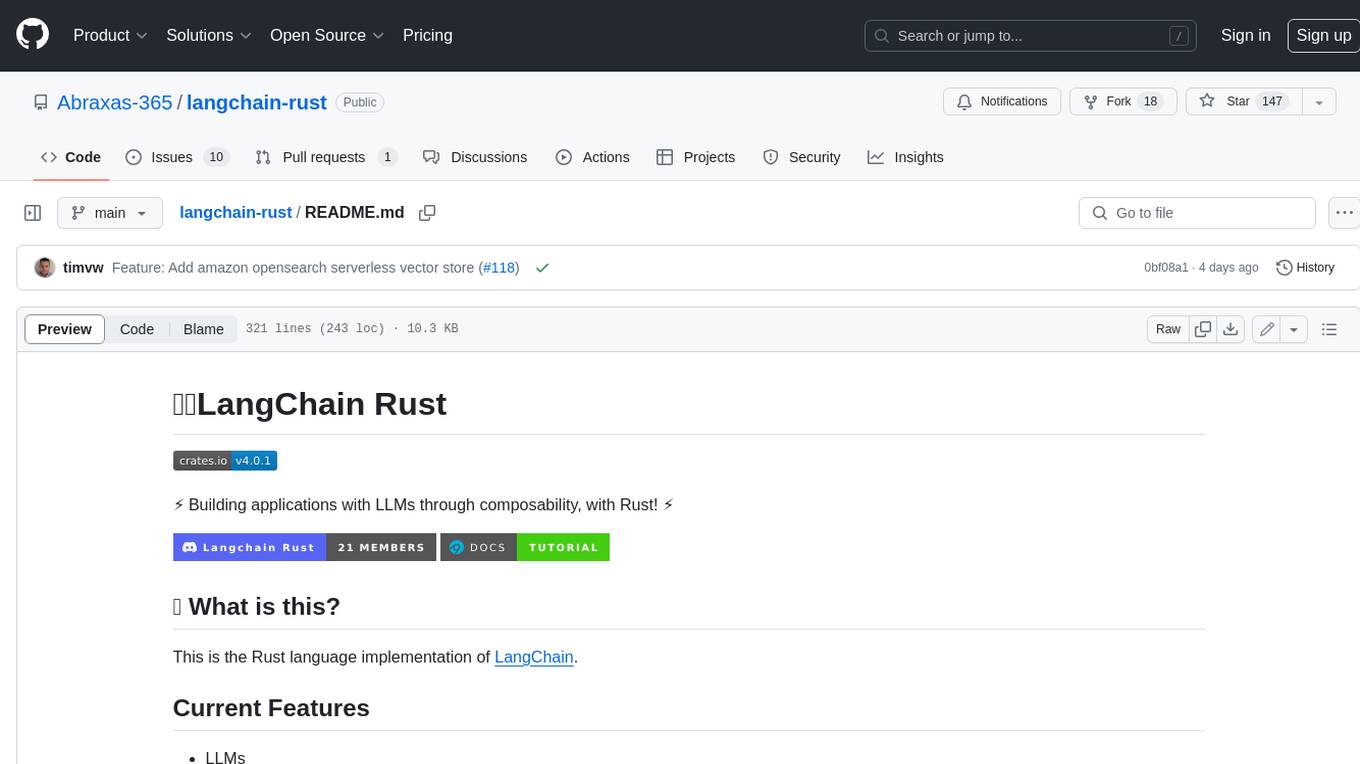
langchain-rust
LangChain Rust is a library for building applications with Large Language Models (LLMs) through composability. It provides a set of tools and components that can be used to create conversational agents, document loaders, and other applications that leverage LLMs. LangChain Rust supports a variety of LLMs, including OpenAI, Azure OpenAI, Ollama, and Anthropic Claude. It also supports a variety of embeddings, vector stores, and document loaders. LangChain Rust is designed to be easy to use and extensible, making it a great choice for developers who want to build applications with LLMs.
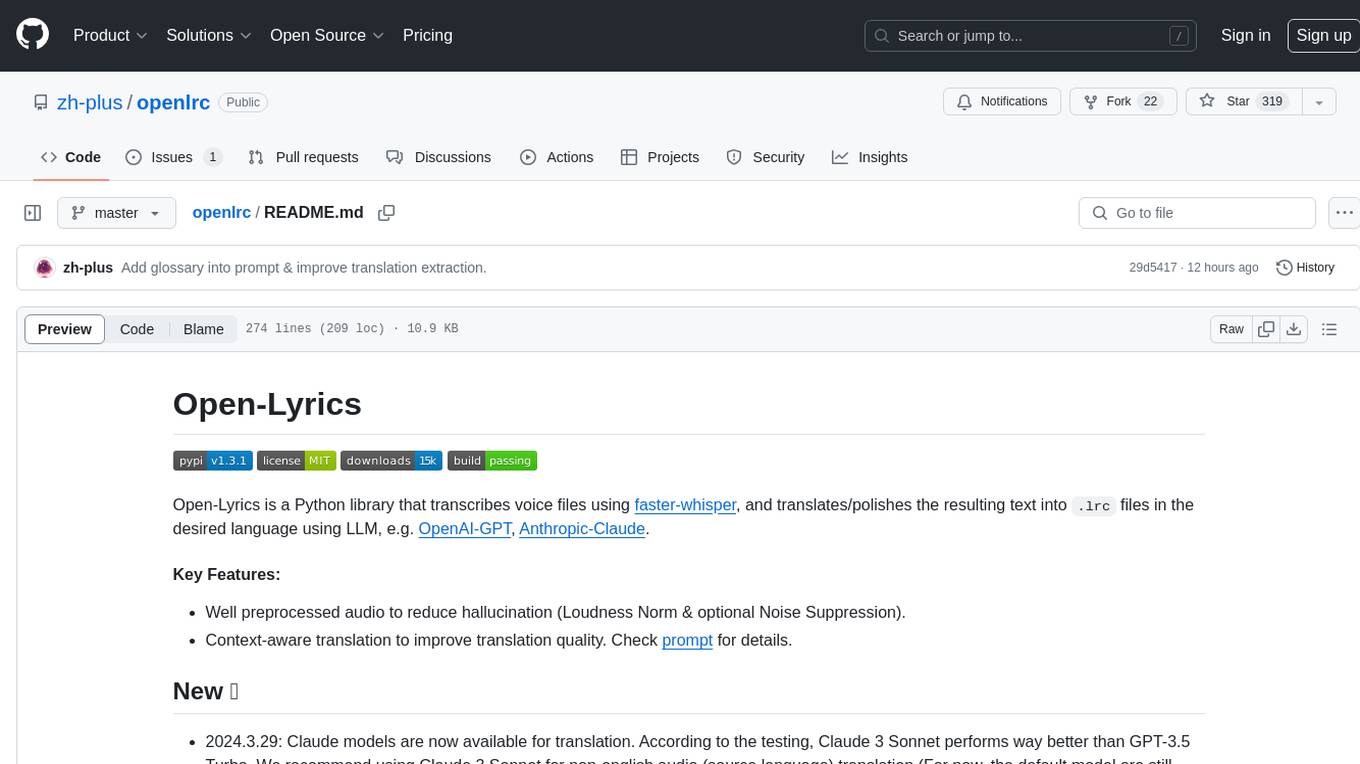
openlrc
Open-Lyrics is a Python library that transcribes voice files using faster-whisper and translates/polishes the resulting text into `.lrc` files in the desired language using LLM, e.g. OpenAI-GPT, Anthropic-Claude. It offers well preprocessed audio to reduce hallucination and context-aware translation to improve translation quality. Users can install the library from PyPI or GitHub and follow the installation steps to set up the environment. The tool supports GUI usage and provides Python code examples for transcription and translation tasks. It also includes features like utilizing context and glossary for translation enhancement, pricing information for different models, and a list of todo tasks for future improvements.
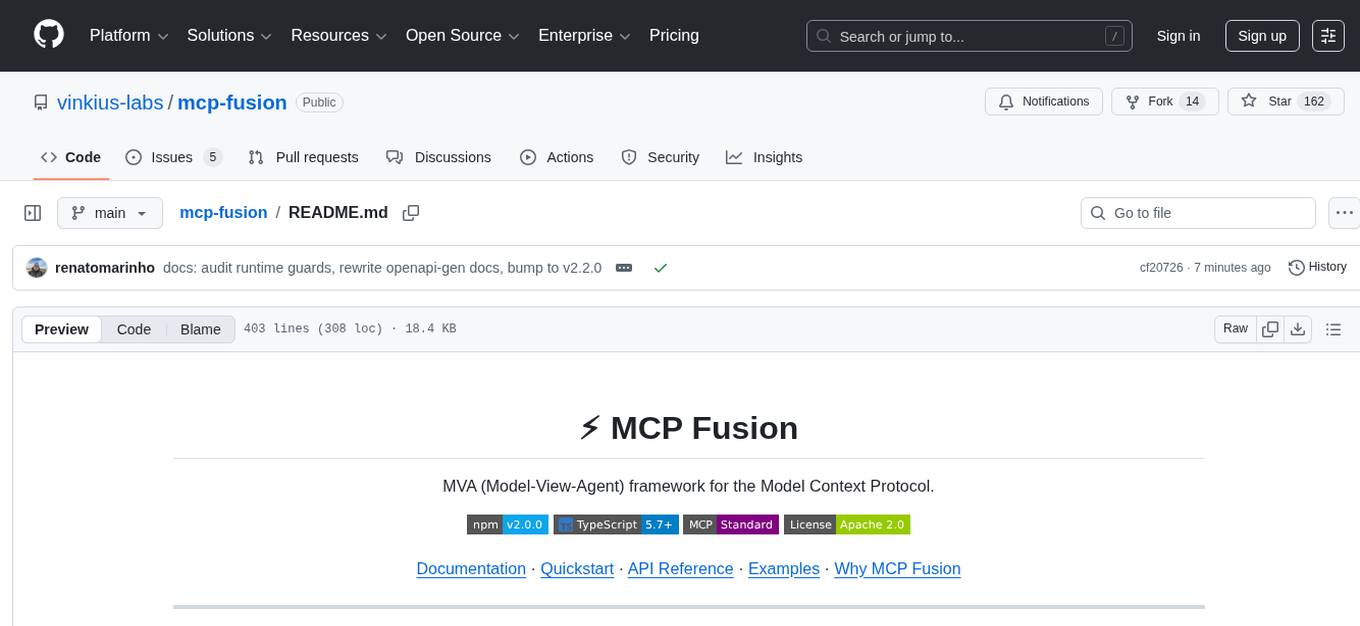
mcp-fusion
MCP Fusion is a Model-View-Agent framework for the Model Context Protocol, providing structured perception for AI agents with validated data, domain rules, UI blocks, and action affordances in every response. It introduces the MVA pattern, where a Presenter layer sits between data and the AI agent, ensuring consistent, validated, contextually-rich data across the API surface. The tool facilitates schema validation, system rules, UI blocks, cognitive guardrails, and action affordances for domain entities. It offers tools for defining actions, prompts, middleware, error handling, type-safe clients, observability, streaming progress, and more, all integrated with the Model Context Protocol SDK and Zod for type safety and validation.
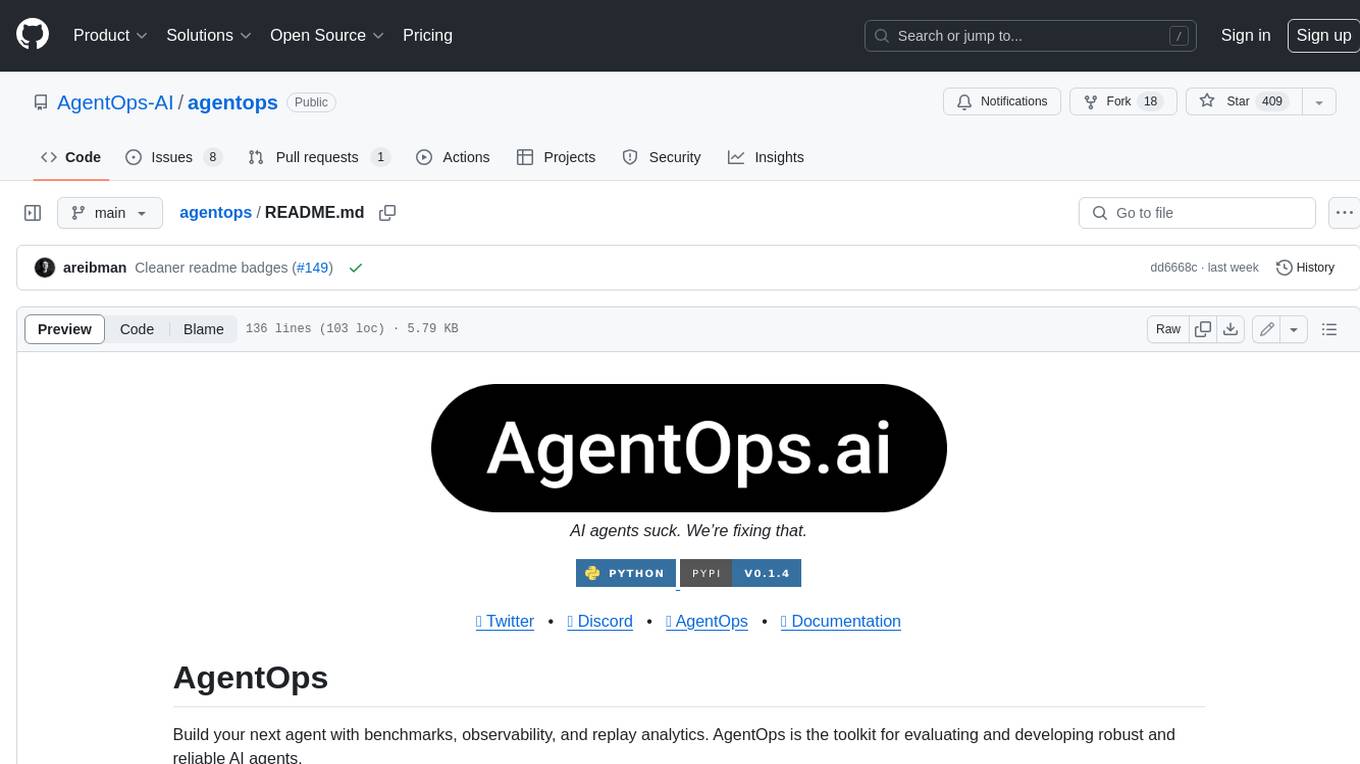
agentops
AgentOps is a toolkit for evaluating and developing robust and reliable AI agents. It provides benchmarks, observability, and replay analytics to help developers build better agents. AgentOps is open beta and can be signed up for here. Key features of AgentOps include: - Session replays in 3 lines of code: Initialize the AgentOps client and automatically get analytics on every LLM call. - Time travel debugging: (coming soon!) - Agent Arena: (coming soon!) - Callback handlers: AgentOps works seamlessly with applications built using Langchain and LlamaIndex.
For similar tasks

excel-spring-boot-starter
The excel-spring-boot-starter project is based on Easyexcel to implement reading and writing Excel files. EasyExcel is an open-source project for simple and memory-efficient reading and writing of Excel files in Java. It supports reading and writing Excel files up to 75M (46W rows 25 columns) in 1 minute with 64M memory, and there is a fast mode for even quicker performance but with slightly more memory consumption.
For similar jobs

Azure-Analytics-and-AI-Engagement
The Azure-Analytics-and-AI-Engagement repository provides packaged Industry Scenario DREAM Demos with ARM templates (Containing a demo web application, Power BI reports, Synapse resources, AML Notebooks etc.) that can be deployed in a customer’s subscription using the CAPE tool within a matter of few hours. Partners can also deploy DREAM Demos in their own subscriptions using DPoC.

skyvern
Skyvern automates browser-based workflows using LLMs and computer vision. It provides a simple API endpoint to fully automate manual workflows, replacing brittle or unreliable automation solutions. Traditional approaches to browser automations required writing custom scripts for websites, often relying on DOM parsing and XPath-based interactions which would break whenever the website layouts changed. Instead of only relying on code-defined XPath interactions, Skyvern adds computer vision and LLMs to the mix to parse items in the viewport in real-time, create a plan for interaction and interact with them. This approach gives us a few advantages: 1. Skyvern can operate on websites it’s never seen before, as it’s able to map visual elements to actions necessary to complete a workflow, without any customized code 2. Skyvern is resistant to website layout changes, as there are no pre-determined XPaths or other selectors our system is looking for while trying to navigate 3. Skyvern leverages LLMs to reason through interactions to ensure we can cover complex situations. Examples include: 1. If you wanted to get an auto insurance quote from Geico, the answer to a common question “Were you eligible to drive at 18?” could be inferred from the driver receiving their license at age 16 2. If you were doing competitor analysis, it’s understanding that an Arnold Palmer 22 oz can at 7/11 is almost definitely the same product as a 23 oz can at Gopuff (even though the sizes are slightly different, which could be a rounding error!) Want to see examples of Skyvern in action? Jump to #real-world-examples-of- skyvern

pandas-ai
PandasAI is a Python library that makes it easy to ask questions to your data in natural language. It helps you to explore, clean, and analyze your data using generative AI.
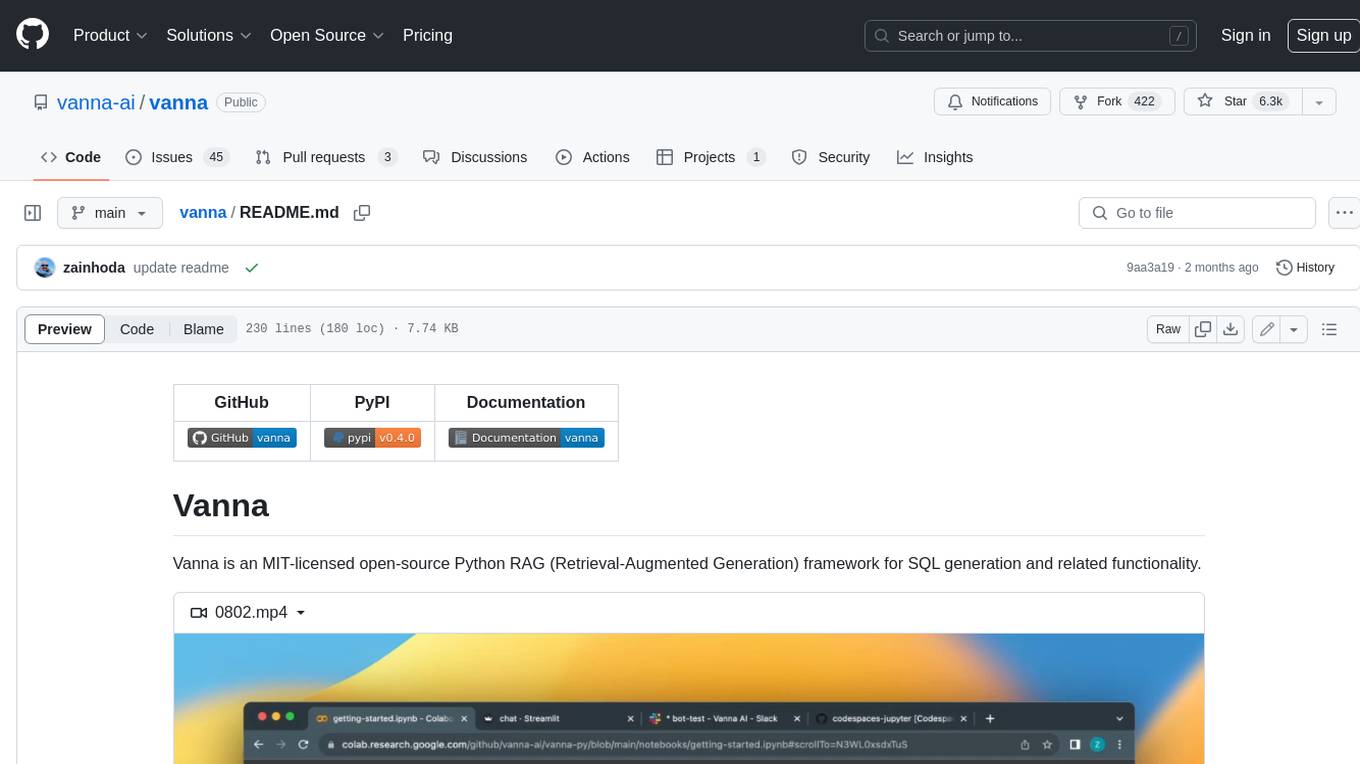
vanna
Vanna is an open-source Python framework for SQL generation and related functionality. It uses Retrieval-Augmented Generation (RAG) to train a model on your data, which can then be used to ask questions and get back SQL queries. Vanna is designed to be portable across different LLMs and vector databases, and it supports any SQL database. It is also secure and private, as your database contents are never sent to the LLM or the vector database.

databend
Databend is an open-source cloud data warehouse that serves as a cost-effective alternative to Snowflake. With its focus on fast query execution and data ingestion, it's designed for complex analysis of the world's largest datasets.

Avalonia-Assistant
Avalonia-Assistant is an open-source desktop intelligent assistant that aims to provide a user-friendly interactive experience based on the Avalonia UI framework and the integration of Semantic Kernel with OpenAI or other large LLM models. By utilizing Avalonia-Assistant, you can perform various desktop operations through text or voice commands, enhancing your productivity and daily office experience.
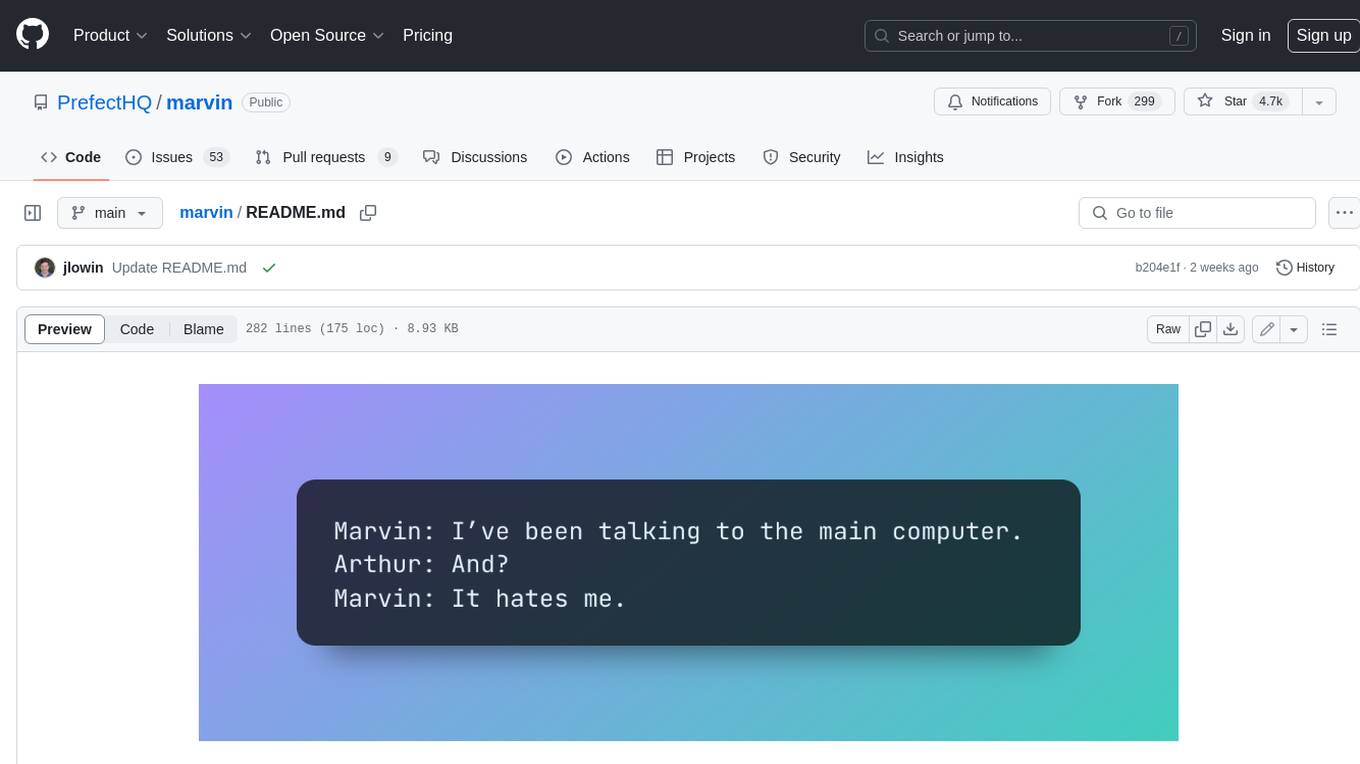
marvin
Marvin is a lightweight AI toolkit for building natural language interfaces that are reliable, scalable, and easy to trust. Each of Marvin's tools is simple and self-documenting, using AI to solve common but complex challenges like entity extraction, classification, and generating synthetic data. Each tool is independent and incrementally adoptable, so you can use them on their own or in combination with any other library. Marvin is also multi-modal, supporting both image and audio generation as well using images as inputs for extraction and classification. Marvin is for developers who care more about _using_ AI than _building_ AI, and we are focused on creating an exceptional developer experience. Marvin users should feel empowered to bring tightly-scoped "AI magic" into any traditional software project with just a few extra lines of code. Marvin aims to merge the best practices for building dependable, observable software with the best practices for building with generative AI into a single, easy-to-use library. It's a serious tool, but we hope you have fun with it. Marvin is open-source, free to use, and made with 💙 by the team at Prefect.

activepieces
Activepieces is an open source replacement for Zapier, designed to be extensible through a type-safe pieces framework written in Typescript. It features a user-friendly Workflow Builder with support for Branches, Loops, and Drag and Drop. Activepieces integrates with Google Sheets, OpenAI, Discord, and RSS, along with 80+ other integrations. The list of supported integrations continues to grow rapidly, thanks to valuable contributions from the community. Activepieces is an open ecosystem; all piece source code is available in the repository, and they are versioned and published directly to npmjs.com upon contributions. If you cannot find a specific piece on the pieces roadmap, please submit a request by visiting the following link: Request Piece Alternatively, if you are a developer, you can quickly build your own piece using our TypeScript framework. For guidance, please refer to the following guide: Contributor's Guide
